In-Depth
Apple Influence on Display in New Crop of Windows PCs
The skinny and streamlined group of Windows PCs that Microsoft recently showed off seems to reference some of Apple's design philosophy -- even though Microsoft may never admit it outright.
- By Scott Bekker
- September 24, 2011
Even a cursory look at the fall lineup of nine Windows PCs that Microsoft put on display online on Wednesday shows the heavy influence that Apple is exerting on the PC industry.
In a statement about the new Windows 7 systems, Microsoft describes the commonalities of the new hardware without referencing Cupertino. "What's the big trend this year? Skinny," Microsoft said in a description accompanying an online slideshow. "Whether producing laptops, all-in-ones, tablets or phones, Microsoft's hardware partners are shipping super thin and light devices, which are more portable than ever. In spite of their size, these devices are still strong and durable, thanks to advanced design and materials."
Indeed, computers have been becoming smaller and lighter for decades. But the size, design and color of several of the new PCs call to mind Apple's distinctive MacBook Air and MacBook Pro laptops, while the touch interface revolution that the Apple iPad is helping to usher in is evident in other models.
The Apple influence is most evident in three brushed-metal beauties. One is the Acer Aspire S3 Ultrabook. At 13 millimeters thin and boasting a 1.5-second wake-up time from sleep, the Aspire S3 Ultrabook will be available in October.
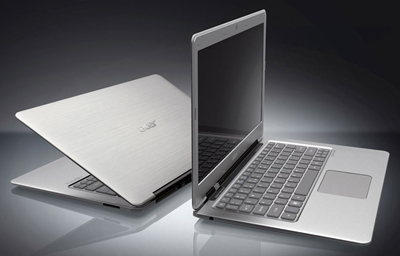
|
| Acer Aspire S3 Ultrabook |
Another is the ASUS UX21, a 17 millimeter, all-aluminum, lightweight chassis that is coming out this month.
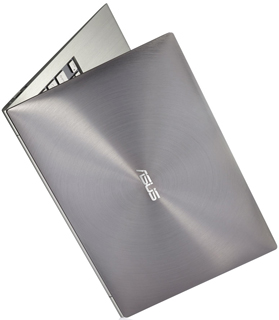
|
| ASUS UX21 |
The third is the Toshiba Portege z835, which will weigh in at 2.5 pounds when it ships in November.
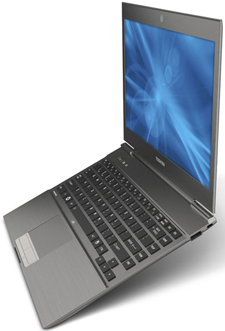
|
| Toshiba Portege z835 |
Some of the new PCs show more of a traditional PC laptop influence, just smaller and lighter. The Samsung Series 7 Chronos, coming in October, sports a lean and muscular profile.
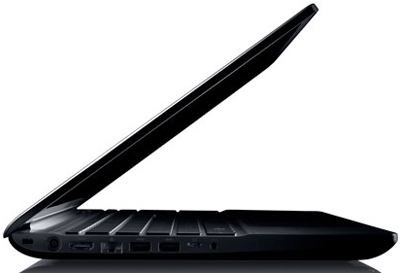 |
| Samsung Series 7 Chronos |
The Lenovo IdeaPad U360s is a classic-looking PC inside with a leathery look on the outside.
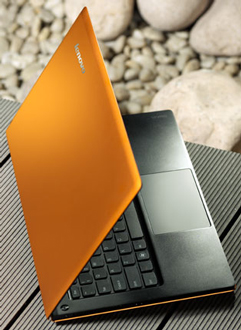 |
| Lenovo IdeaPad U360s |
The Dell Inspiron 14z, out this month, has Dell's distinctive coloration to it.
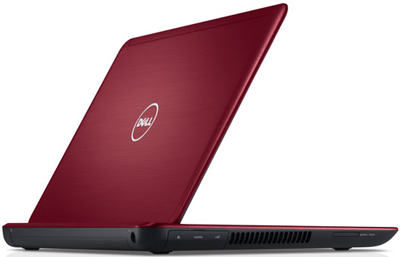 |
| Dell Inspiron 14z |
The story is the same with an HP Pavilion dm1; despite a metal coloring, the PC has a style that is uniquely HP.
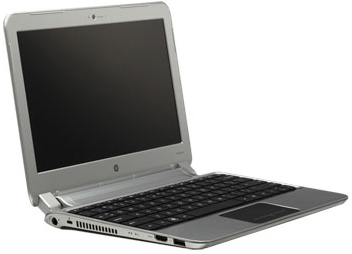 |
| HP Pavilion dm1 |
Perhaps the strongest stamp of Apple's design influence comes in the Sony Vaio L, an all-in-one desktop. The detached keyboard looks very much like the Apple keyboard, but the main feature is the large touch screen.
While Microsoft "Windows 8" is widely believed to be Redmond's response to the iPad, or at least to the user trends that have made the iPad such a hit, part of Microsoft's strategy is to integrate the touch interface across all PCs. Desktops with touchscreens, like the Sony Vaio L, are paving the way in the Windows 7 generation (Windows 7 also supports touch, but in a much less comprehensive way.) Another example of a touch-capable desktop that could provide a bridge to Windows 8 is the HP TouchSmart 610, which Microsoft highlighted in a similar device showcase in early June (see "7 Killer Windows Devices at Computex").
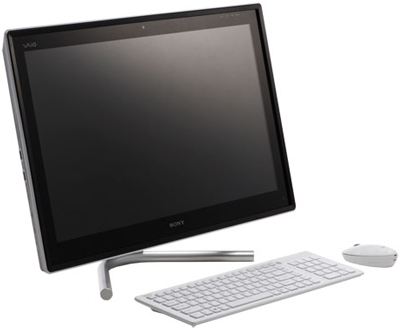 |
| Sony Vaio L |
One other device in the new lineup with clear Windows 8 overtones, and even clearer parallels to the iPad, is the Samsung Series 7 Slate PC. The device has an 11.5-inch screen, front and rear cameras, a 1.6-GHz Intel Core i5 processor, either 64 GB or 128 GB of SSD, and a weight described as "less than 2 pounds," which compares to about 1.33 pounds for an iPad 2.
The Samsung Series 7 Slate PC, available next month and shown on Microsoft's site docked with a keyboard, is a close sibling of the developer-only Windows 8 slates that were given out to 5,000 attendees of Microsoft's Build show last week. Those devices, called the Samsung Windows Developer Preview PC, won't be available for sale to the general public. Running the developer preview edition of Windows 8, the developer's device featured an 11.6-inch, 1366 x 768 display; an i5 processor; 64GB of SSD storage; 4GB of DDR3 memory; and weighed two pounds.
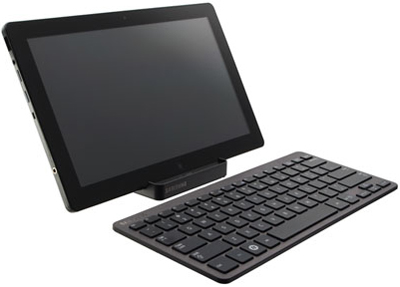 |
| Samsung Slate |
About the Author
Scott Bekker is editor in chief of Redmond Channel Partner magazine.